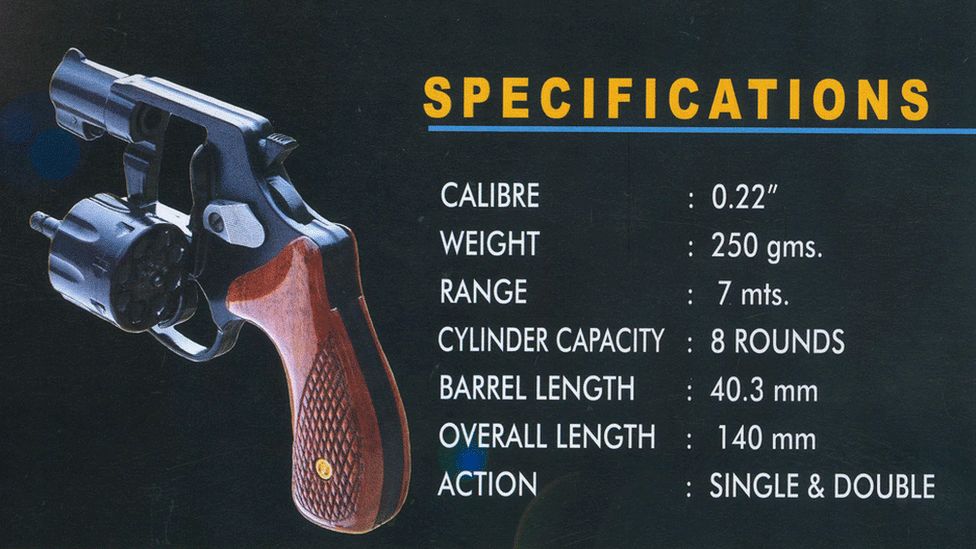Nidar: India launches 'lightest gun' weighing 250g
- Published

Two years after India launched Nirbheek, a handgun pitched as the country's "first gun for women", a state-run arms factory has launched a similar gun which it says is India's lightest gun.
The new .22-calibre revolver is named Nidar, it weighs a mere 250g (8.8 ounces) - that's half of .32-calibre Nirbheek's 500g (1.1lb); and it costs 35,000 rupees ($513; £357) - Nirbheek came with a steep price tag of 122,360 rupees ($1,990; £1,213).
Manufacturers say Nidar is made with an aluminium alloy which makes it very light, but has "strength similar to steel", it has a 40-mm barrel and is just 140mm in length which makes it "small enough to fit into a palm".
Both Nirbheek and Nidar are synonyms of Nirbhaya - the nickname given by the Indian press to Jyoti Singh, the 23-year-old victim of December 2012 fatal gang rape on a bus in in Delhi. All three words mean fearless in Hindi.
They are produced by government-owned factories, and their manufacturers say carrying them will make people more confident and "fearless".
An official at the state-run Rifle Factory Ishapore, near the eastern city of Kolkata (Calcutta), said Nidar was aimed at "professional Indian men and women".
"I believe our customers would be people who travel a lot, who have security risks. They will buy this gun for their personal safety," factory in-charge PK Agarwal told the BBC.
He said he expected the gun to be more popular with women.
"I think it will be ideal for women. If a woman takes a taxi at night, the driver will think 10 times before trying anything with her because he knows she has a gun in her purse," he added.
But can carrying a gun make people safer?
Not really.
Most places in India do not allow guns - even the licensed ones - and there are metal detectors at many offices, malls, cinemas, markets and other public places to enforce this.
So even if "professional Indian men and women" were to get a gun, it will be of little use to them because they will not be able to carry it around with them.
Anti-gun campaigners also say that arming citizens is never a good idea - and that the way to tackle women's safety and reduce crimes is by better policing and changing attitudes.
The manufacturers of Nidar, however, are confident that their product will succeed - Mr Agarwal told the BBC that he expected to sell 10,000 units of the gun this year.
- Published17 January 2014